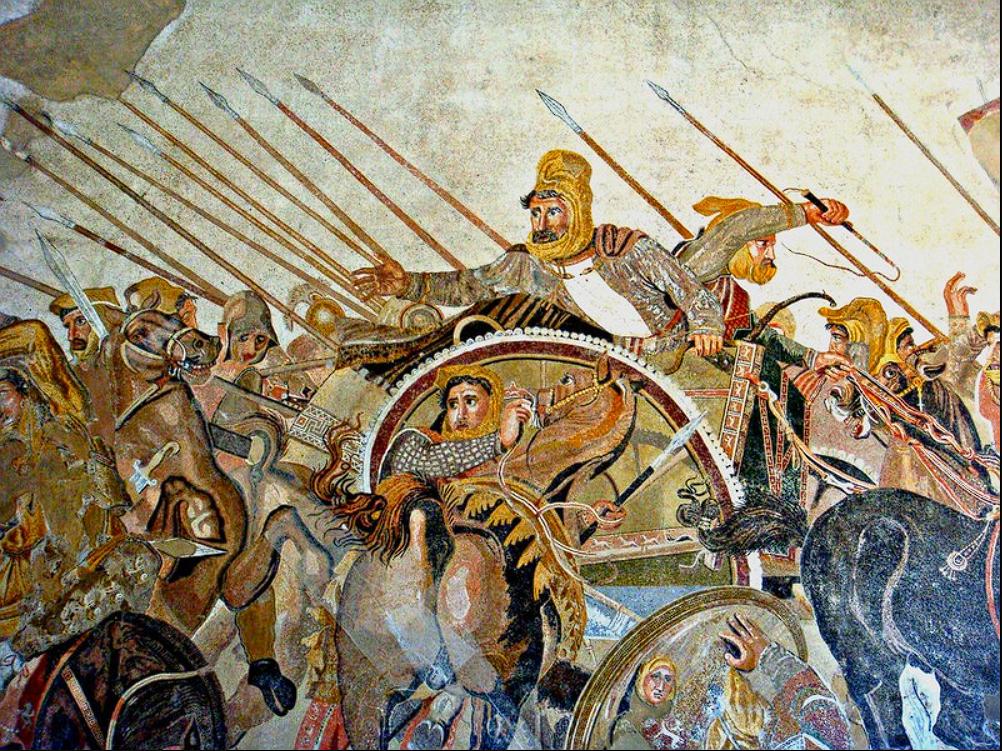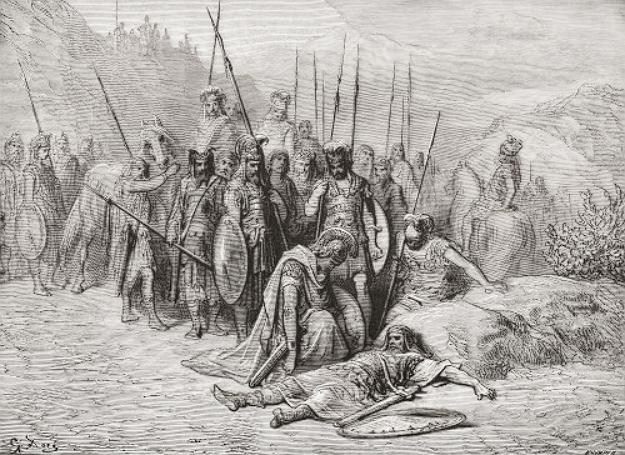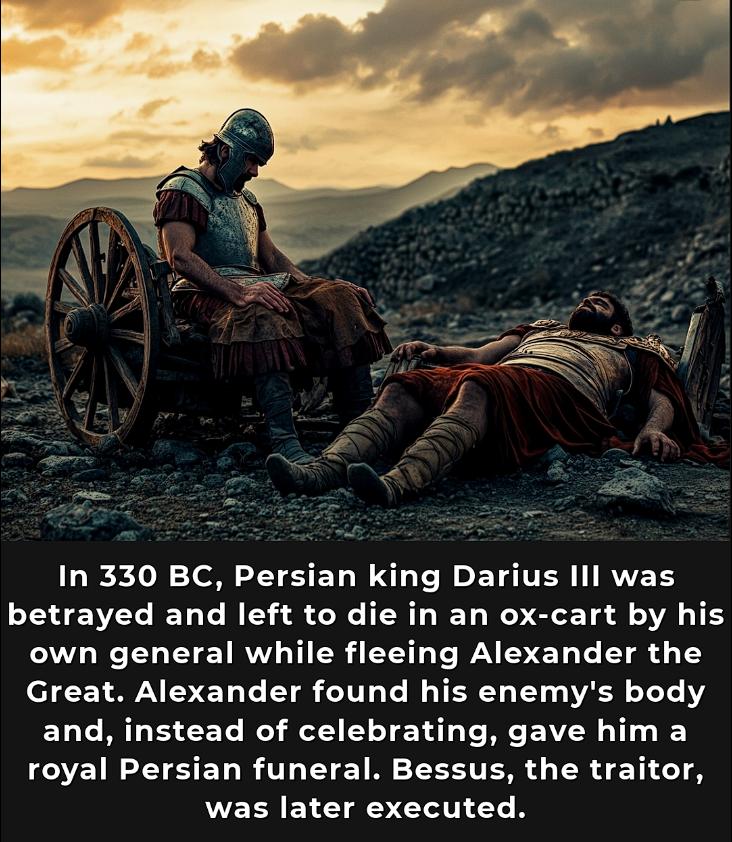In the tumultuous era of Alexander the Great’s conquests, the tragic end of Darius III and the subsequent actions of Alexander revealed a profound moment of respect that transcended the brutality of war.
The Fall of Darius III
Darius III’s demise was marked by betrayal and abandonment, highlighting the precarious nature of power in ancient times.
Betrayal and Abandonment
Darius III’s downfall began with betrayal by his general, Bessus, during Alexander the Great’s relentless pursuit.
- Bessus’s Treachery:
- Bessus, one of Darius III’s generals, betrayed his king, leading to Darius’s capture and eventual death.
- This act of treachery reflected the political instability and personal ambition of the time.
- Ox-Cart Abandonment:
- Darius III was bound in chains and left to die in an ox-cart, abandoned in the harsh terrain.
- This abandonment underscored the cruelty and desperation of his final moments.
- Tragic End:
- The once-mighty Persian king met a tragic end, left alone to perish in the wilderness.
- His death marked the end of an era for the Persian Empire.
Discovery and Aftermath
The discovery of Darius III’s body by a Macedonian soldier led to an unexpected act of honor by Alexander the Great.

- Macedonian Discovery:
- A Macedonian soldier discovered Darius III’s body, bringing his demise to Alexander’s attention.
- This discovery set in motion an unexpected turn of events.
- Alexander’s Reaction:
- Alexander, despite his fierce rivalry with Darius, ordered a royal funeral for his defeated enemy.
- This decision reflected Alexander’s respect for royal traditions and his sense of honor.
- Royal Funeral Honors:
- Alexander ensured that Darius received full burial honors in accordance with ancient Persian traditions.
- This gesture underscored Alexander’s magnanimity and respect for his fallen adversary.
Bessus’s Fate
Bessus’s actions, intended to curry favor with Alexander, ultimately led to his downfall and execution.
- Failed Ambition:
- Bessus hoped to gain Alexander’s favor by eliminating Darius III, but his treachery only earned Alexander’s contempt.
- His actions were seen as dishonorable and treacherous.
- Capture and Execution:
- Alexander later captured and executed Bessus for his treachery against his king.
- This execution served as a stark reminder of the consequences of betrayal.
- Justice Served:
- Alexander’s decision to execute Bessus demonstrated his commitment to justice and his respect for royal authority.
- It also showed he would not tolerate treachery.
The Significance of Alexander’s Gesture
Alexander’s decision to honor Darius III with a royal funeral marked a pivotal moment in ancient history, highlighting the complexities of warfare and leadership.
Respect Beyond Rivalry
Alexander’s gesture exemplified a moment where respect transcended the boundaries of war, showcasing his magnanimity and statesmanship.

- Magnanimous Act:
- Alexander’s decision to honor his defeated enemy was a magnanimous act, demonstrating his respect for royal traditions.
- This act highlighted his noble character.
- Statesmanship:
- By honoring Darius III, Alexander displayed statesmanship, recognizing the importance of respecting fallen adversaries.
- This gesture contributed to his reputation as a great leader.
- Contrasting Betrayal:
- Alexander’s honorable act stood in stark contrast to the betrayal by Darius’s own men, highlighting the difference between honor and treachery.
- It showed a clear difference between Alexander and the betrayers.
Historical Impact
Alexander’s actions had a lasting impact on ancient history, shaping perceptions of leadership and warfare.
- Pivotal Moment:
- The burial of Darius III marked a pivotal moment in ancient history, demonstrating the complexities of warfare and leadership.
- It was a moment that would be remembered.
- Symbol of Respect:
- Alexander’s gesture became a symbol of respect and honor in warfare, influencing subsequent generations of leaders.
- It was a symbol of how enemies could be treated.
- Legacy of Honor:
- The legacy of Alexander’s honorable act continues to resonate, reminding us that respect and magnanimity can transcend conflict.
- It is a legacy that remains today.
The Unmarked Tomb
The exact location of Darius III’s tomb remains unknown, adding to the mystery and intrigue surrounding his final resting place.

- Unknown Location:
- Despite the royal funeral, the exact location of Darius III’s tomb remains unknown to this day.
- This mystery adds to the historical intrigue.
- Achaemenid Burial Grounds:
- It was said to be placed among the royal Achaemenid burial grounds, suggesting a burial site of significant historical importance.
- This shows it was treated with respect.
- Historical Mystery:
- The unmarked tomb of Darius III remains a historical mystery, inviting speculation and further research.
- It is a mystery that historians would love to solve.
Alexander the Great’s decision to honor Darius III with a royal funeral stands as a testament to the power of respect and magnanimity in the face of conflict. This act of honor, set against the backdrop of betrayal and war, continues to resonate, reminding us that even in the midst of conflict, humanity and respect can prevail.
